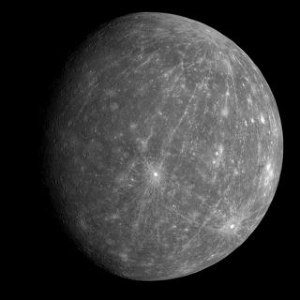
Mercury
(n)Computer hardware contain dangerous chemicals such as: lead, mercury, nickel, and cadmium.
View moreMercury is the smallest and innermost planet in the Solar System.
View moreBecause Mercury was the fastest planet as it moved around the Sun, it is named after the Roman deity Mercury, the messenger of the gods.
View moreBecause Mercury is normally lost in the glare of the Sun (except during a solar eclipse), Mercury can only be seen in the morning or evening twilight.
View moreCompared to what is known about the other planets in the Solar System, little is known about Mercury.
View moreTwo spacecraft have visited Mercury: Mariner 10 flew by in 1974 and 1975;
View moreAnd MESSENGER, launched in 2004, orbited Mercury over 4,000 times in four years before exhausting its fuel and crashing into the planet's surface on April 30, 2015.
View moreThe BepiColombo spacecraft is planned to arrive at Mercury in 2025.
View moreMercury is the most cratered planet in the Solar System.
View moreUnlike many other planets which "self-heal" through natural geological processes, the surface of Mercury is covered in craters.
View moreThe Caloris Basin is the largest impact crater on Mercury covering approximately 1,550 km in diameter and was discovered in 1974 by the Mariner 10 probe.
View moreMars is the fourth planet from the Sun and the second smallest planet in the Solar System after Mercury.
View moreThe largest moon is Titan, which is larger in volume than the planet Mercury.
View more
